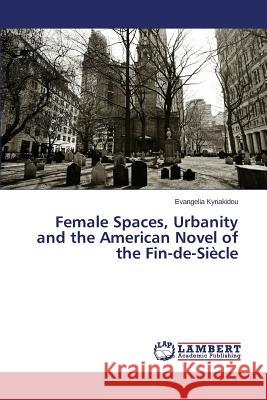Female Spaces, Urbanity and the American Novel of the Fin-de-Siecle » książka
Female Spaces, Urbanity and the American Novel of the Fin-de-Siecle
ISBN-13: 9783659584596 / Angielski / Miękka / 2014 / 68 str.
This book interrogates the spatial exclusion of women from the vast public sphere of city life based on late nineteenth and early twentieth century novels and short stories written by both male and female authors. In particular, this book investigates the female characters in William Dean Howell's The Rise of Silas Lapham (1885), Charlotte Perkins Gillman's The Yellow Wallpaper (1892), Stephen Crane's Maggie: A Girl of the Streets (1893), Kate Chopin's The Awakening (1899), Theodore Dreiser's Sister Carrie (1900), and Edith Wharton's The House of Mirth (1905). In all literary works-where the American city serves not only as social background, but also as a protagonist in the plot-the female characters are excluded from the vibrant city life while those women who attempt to partake in urban life and profit from the professed opportunities offered by the metropolis to its dwellers end up either dead or with a 'marred' reputation.
This book interrogates the spatial exclusion of women from the vast public sphere of city life based on late nineteenth and early twentieth century novels and short stories written by both male and female authors. In particular, this book investigates the female characters in William Dean Howells The Rise of Silas Lapham (1885), Charlotte Perkins Gillmans The Yellow Wallpaper (1892), Stephen Cranes Maggie: A Girl of the Streets (1893), Kate Chopins The Awakening (1899), Theodore Dreisers Sister Carrie (1900), and Edith Whartons The House of Mirth (1905). In all literary works-where the American city serves not only as social background, but also as a protagonist in the plot-the female characters are excluded from the vibrant city life while those women who attempt to partake in urban life and profit from the professed opportunities offered by the metropolis to its dwellers end up either dead or with a marred reputation.











